2021 Biddeford Hall of Fame
Cora Belle Bickford
1858 - 1923
Cora Belle Bickford used numerous avenues for self-expression at a time when women didn’t have legal rights to property or the vote. Most women were unable to have a career or education, but were confined to the sphere of home and children. Bickford sought to enlarge not only her own world, but the world and prospects of all people around her, particularly women.
Cora Belle had writing talent, and was a journalist and published author. She also taught school, one of the few career paths open to women in the 19th century.
One day in the winter of 1896, several ladies were invited to meet at the home of Miss Bickford, and over a cup of tea they discussed the possibility of forming a chapter of the Daughters of the American Revolution in Biddeford. Twelve members were required to form a chapter, and since many men from this vicinity served on the Revolutionary War, it was not difficult to find twelve eligible women to become members-at-large. Cora was appointed organizing agent regent, and on January 25th, 1897, a chapter was formed at her home. Since five members were dependents of Rebecca Emery, it was decided to name the chapter after her.
Cora Bell’s influence and leadership was perhaps most widely felt by her organization of a group for women in 1896 called the “Thursday Club.” The group was a literary, educational and social club for women that met until April of 1990. Opportunities for women to learn, discuss and debate were extremely limited. Countless lives were touched by the philanthropy of the club. Scholarships for Biddeford High School students snd nursing students were given yearly and donations were made to the United Way, McArthur Library, and food pantries among other recipients. The motto of the club reveals her aims and accomplishments: “Good, the more communicated, the more abundant grows” and she surely would be recognized for accomplishing much within the constraints of American culture in the nineteenth and early twentieth century.


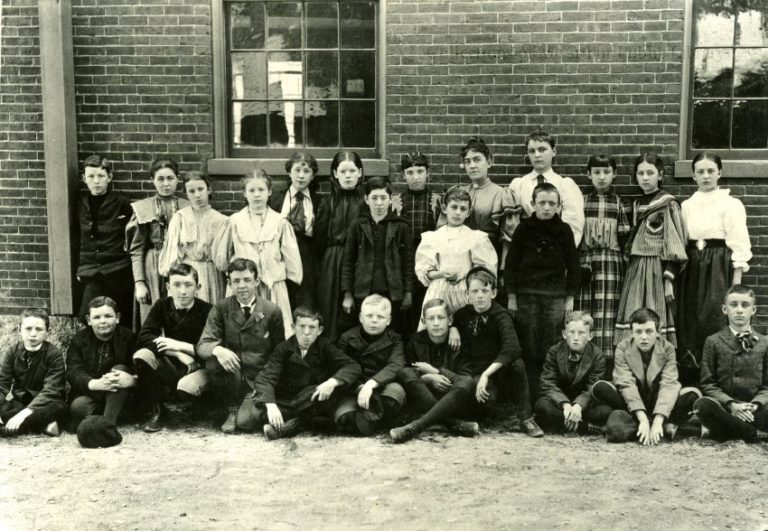
Michael Cantara
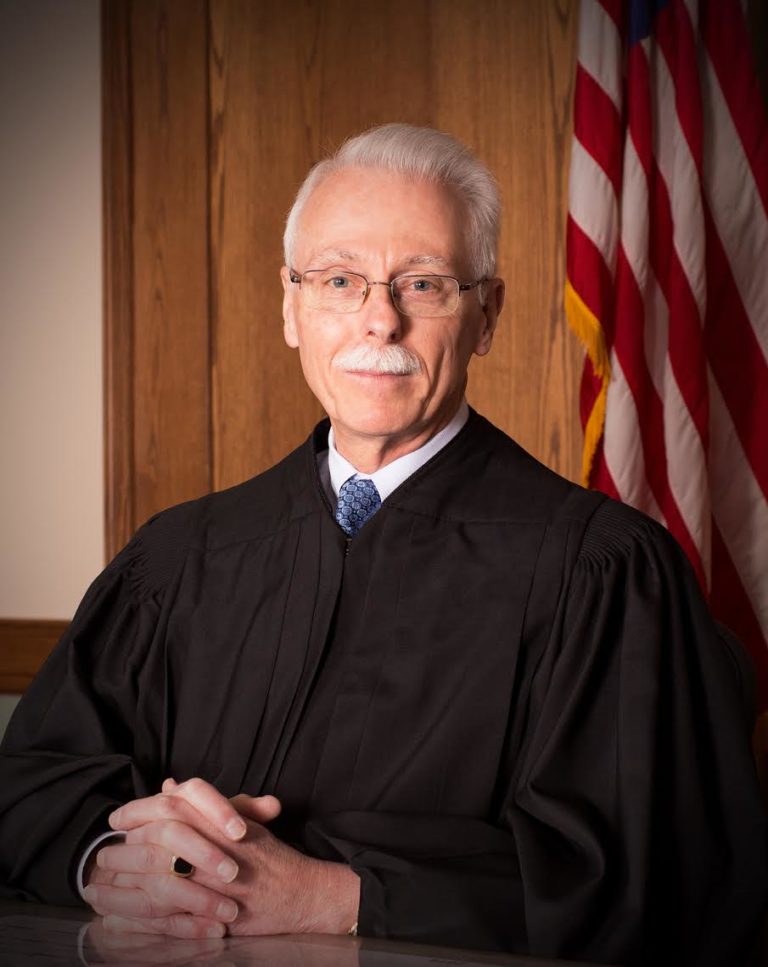
Michael Cantara graduated from Biddeford High school in 1971. He studied French language and literature, minoring in biology, at Colby College, and studied a year abroad, at the Université de Caen, in Normandy. A Fulbright Scholar, Cantara taught American Culture and Language for a year in Normandy, and later went on to Middlebury College, where he continued to study French and political science, first at the Vermont campus and later at the Universite de Paris. His education continued in graduate studies at the University of Michigan and the Maine School of Law, in Portland.
While much of his college education seemed to concentrate on the study of French language and literature, Cantara said political science and law were always among his interests.
Growing up in the 1960s and attending college in the 1970s, said Cantara, political issues were at the forefront, citing Watergate, the Vietnam War, civil rights, women’s rights, and the environmental and ecological movements.
“I remember being in a classroom when Martin Luther King and Robert Kennedy were assassinated,” recalled Cantara. “Those (events) marked all young people at the time, and it was hard not to think about where the country was going and what we needed to do.”
He said a friend he had met at a student council conference in high school, Michael Messerschmidt, who went on to practice law, kept urging him to apply to law school.
He was an attorney in private practice in Biddeford from 1981 to 1984, and then moved on to become a prosecutor in the York County District Attorney’s Office until 1986 when he returned to private practice. He became mayor of Biddeford in 1988 and had previously served on the city’s Planning Board. In 1991 Cantara began a 12-year stint as York County District Attorney and was nominated by former Governor John Baldacci as a judge. When he retired as Maine District Court Judge he had spent a dozen years on the bench.
“During difficult times, Mike would always be the voice of reason,” said Baldacci. “He doesn’t take credit very well, but he is one of the nicest people. He is honest and true blue as you could ask of anybody. He truly believes in making a difference in people’s lives.”
The idea for the Biddeford Free Clinic came about over Thanksgiving 1992 as Kleeman and his children sat around the dinner table. President Bill Clinton had recently been elected and he had talked a lot about implementing universal health care during his campaign.
“My kids said to me, ‘All you doctors are lazy because you don’t provide care to people without insurance,’” said Kleeman, who was a practicing urologist when the clinic opened but is retired now . “I told them if you really think there are so many people without insurance, find out if that’s true. We found out there really was a need.”
After learning that 92,000 Maine residents – out of a population of 1.1 million – didn’t have insurance in 1987, Kleeman asked local health officials if a free clinic would ease the burden in Biddeford. They told him it would, but it wouldn’t be easy to make it work.
Kleeman’s children, Mike, Chris and Julie, helped their father secure rent-free space in a community center in Biddeford, raise money and gather donated medication. Dozens of doctors, nurses, pharmacists, medical technicians, medical students and administrative personnel signed up to volunteer. “My expectation was we’d be open five years,” he said. “I had no idea how long it would be.” But with no major changes to the health care system until the 2010 Affordable Care Act, the number of patients who couldn’t afford a doctor held steady.
When the clinic first opened, about 700 patients came through its doors each year. It wasn’t uncommon for doctors to see a dozen patients and for pharmacists to fill as many as 70 prescriptions each night. By the time it closed in September of 2015, after 22 years, there were 4 or 5 patients each night and they filled only 24 prescriptions per week. The number of patients fell off dramatically as insurance became available through the ACA marketplace.
“He was the heart and soul of the organization,” said Joan Gordon, who worked there from the beginning. “There isn’t anyone like him in the world. The Biddeford Free Clinic never would have happened without him.”
Dr. Francis Kleeman


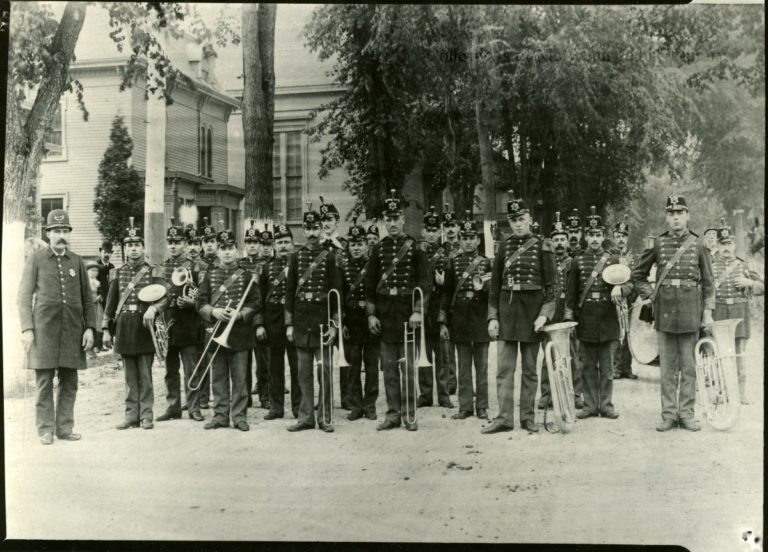
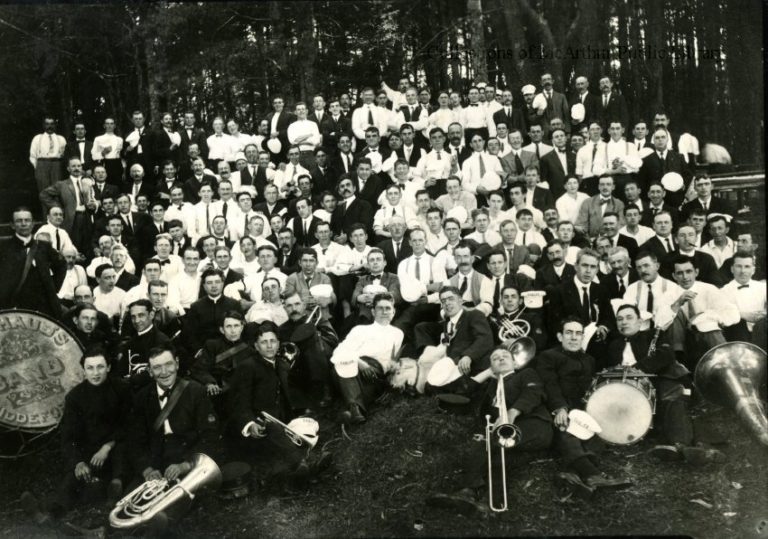
Pierre L. Painchaud
1852 - 1909
Pierre L. Painchaud brought the start of culture and arts to the city of Biddeford. He was the first, and probably most talented, Franco American performer in his lifetime and beyond.
Born in Canada, he immigrated as a young child of 5 years old, grew up, went to school here and developed his musical abilities in Biddeford. He went on to share this with his community and inspired others to follow his lead.
In 1870 he formed Painchaud’s Band (La Fanfare Painchaud), which was one of the best and first Franco-American bands in New England. It was also one of the oldest continuing bands, performing over a period of over 120 years. It was disbanded in the mid 1990’s and there are still many people living today who were part of this great institution.
Painchaud’s was the official band of the Maine Regiment during the Spanish American War and had 24 members volunteer to serve at that time. It was also the official City of Biddeford band. The band played concerts in the many cities that they visited and played for the US Consul in Canada. Painchaud and his band won multiple awards throughout New England and Canada.
Pierre’s whole family was musical. His Grandmother, Anna Matthews, was the only female member of the London Symphony at that time. His children sang, played instrument and acted as well. His daughter, Carmeline, was an opera singer and was considered one of the best soloists in York County. His other daughter, Heloise, was part of the Biddeford Philharmonic Orchestra and a church organist for many years. His sons were performers in their own rights. In 1890 Pierre formed “La Famille Painchaud” with his family members. In 1899 he also helped to organize L’Union Musicale put on operas and comedic plays in the city.
Pierre had many talents to share and was a musical genius. He was a band leader, sand, acted, did comedy routines, taught music and played the violin, cello and coronet. He repaired, tuned and built instruments, composed and arranged music and directed the St. Joseph’s choir.
He was a driving force in Biddeford for almost 40 years and the legacy he left has lasted many more.
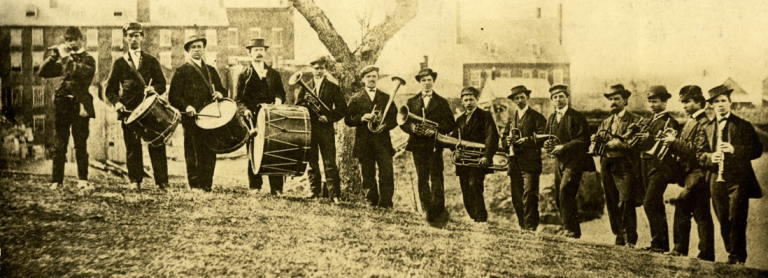
Just out of college, in his early ‘20s, Sanford and former business partner Steve Ebling first bought property in Biddeford in ’80 – ’81 because of the opportunity. “It was the apartment building at the corner of South and Elm streets,” Sanford says, remembering every part of it. “It was owner financed, 10 apartments, a hodge podge of a building for $60,000. I think I was 23 at the time. I had been living in southern New Hampshire, but I couldn’t find anything I could buy there. That hodge podge of a building is where Sanford first had an office. Sanford continually looked for more properties. A couple of years later, he bought the building that now houses Happy Dragon. “It was called Puritan Place at that time,” he says. “It was abandoned. And it was divided at the corner – we needed to work a deal with both owners.” Other properties bought by Sanford and Ebling include a building on North Street in Saco, the Polakowich building at 124 Main St. in Biddeford and the building with Woolworth’s in Biddeford. “That was in ’86,” Sanford says. “There were 20 apartments and we redid the storefronts. At the time, everyone thought it was ridiculous.”
“I had no stigma about Biddeford,” Sanford says. “I was looking for opportunity. I had lived in southern New Hampshire and I couldn’t find any property south of here. So I went up the coast. This was the first place with an opportunity.”
In 2004, Sanford bought North Dam Mill, which was the beginning of the new mill development in Biddeford. “Biddeford had a great infrastructure and it was coastal Maine,” he says. At the time, the different floors were large, open spaces. Now there are dozens of businesses, along with dozens of fully-leased apartments. He never looked back.
David Flood says of Sanford “He gave me a tour of North Dam Mill a couple of days after he bought it in 2004 and all of the floors were huge, open spaces. If he had not been successful, then I think the rest of the mill development doesn’t happen. And we’re talking what will end up being more than $200 million in private investments. I think this is the biggest transformation of Biddeford since the 1840s and ‘50s when the mills were starting to be built.”
Opportunity indeed.
Excerpts from Biddeford Profiles by David Flood
Doug Sanford
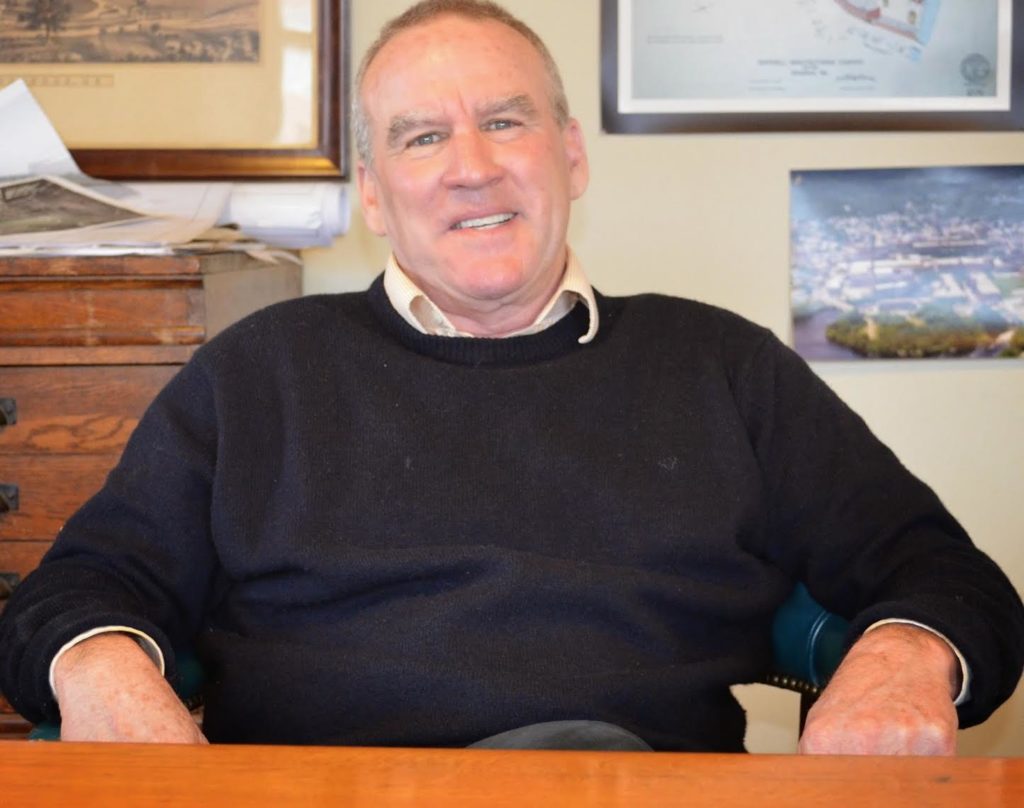

James Sullivan
1744 - 1808
James Sullivan was born on April 22, 1744, the fourth son of John Sullivan and Margery Brown Sullivan, in Berwick, in a part of the Province of Massachusetts Bay that is now the state of Maine. Sullivan studied law in his brother John’s law practice in Durham, New Hampshire, and was eventually admitted to the bar in Massachusetts.
Professionals were drawn to the bustling town of Biddeford, and doctors and lawyers opened up successful, busy practices. James Sullivan was one of these lawyers, and was the towns first resident lawyer. His law practice flourished and by the time he was 30 he was one of York County’s leading citizens. He would serve as a Judge in the Supreme Court, Governor of Massachusetts, and Biddeford’s representative to the Provincial Congress prior to the Revolution. Sullivan played a leading part in deliberations at the Meeting House on the Old Pool Rd. in the early days of the Revolutionary period. He supplemented his legal work by acting as an agent for Boston-based merchant interests, including John Hancock, one of Boston’s wealthiest men. He participated in framing the Constitution of the Commonwealth of Massachusetts. As adviser to John Hancock, he probably contributed in the framing of the Federal Constitution.
John Hancock rewarded Sullivan for his support in 1790 with an appointment as the State’s attorney general, a post he held until 1807. Although he supported the Democratic-Republican Party, his views were relatively moderate, so he retained the post of state attorney general despite the dominance of the Federalists in the state
Sullivan supported harsh laws confiscating the property of Loyalists who fled the country or fought with the British, although he later took on as clients personal friends who were Loyalists seeking to recover their property. In his native Maine he had a mixed record, representing the state against large-scale land proprietors, but also taking work from the latter (who included some of the most powerful politicians in the state). His interest in the tangled difficulties surrounding land titles in Maine prompted him to write a seminal work on the subject in 1801, The History of Land Titles in Massachusetts.
